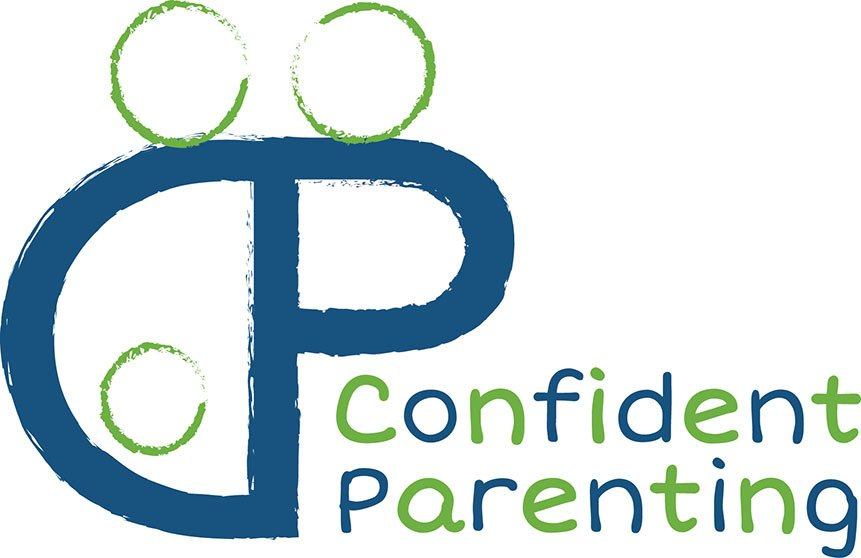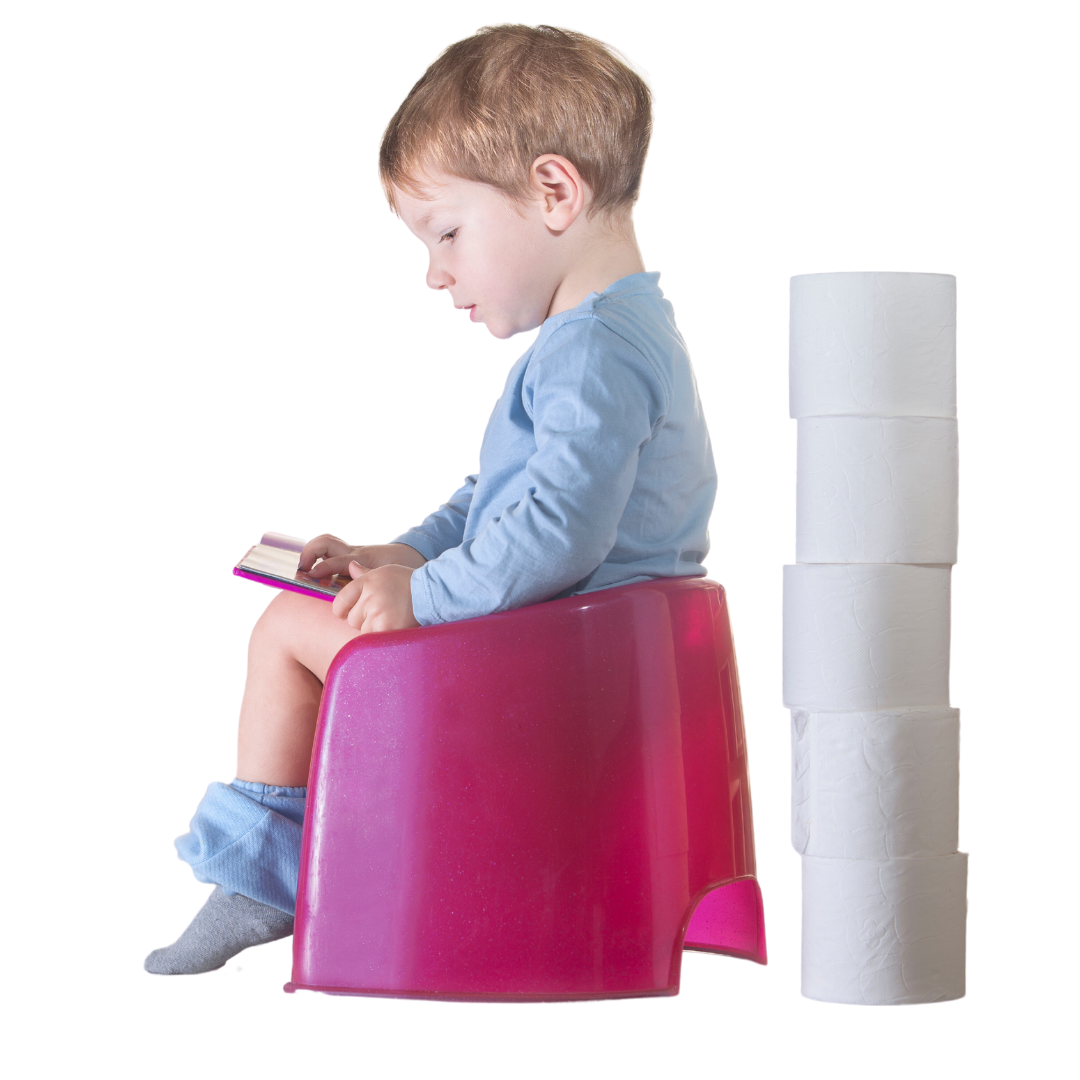Erica Desper, Bernadette Samuels and Amelia Kinsolving are moms supporting moms (and all parents) on the path to better sleep and smoother potty training, since 2010. Confident Parenting was named “Best” and "Family Favorite" resource by the Main Line Parent, Bucks County Parent and Philadelphia Family communities in 2022, their 9th and 10th and 11th accolade from parents!
4 Easy Ways to Spring Baby's Sleep Forward for Daylight Saving
Erica Desper
Our Team Lays Out 4 Easy Ways to Spring Baby's Sleep Forward When the Clocks Change...

While springing forward is not quite as disruptive as falling back on the clock, it can leave your little ones feeling “off” for a few days. Don’t panic! Even the most sensitive children can adjust.
Here
are some tips to help your family prepare and adjust to any time change:
An overtired child has a harder time adjusting and coping with any change. Make a special effort in the days approaching the time shift to ensure that your child gets adequate sleep.
When the clocks change in either direction, be sure to head outside
with your baby first thing in the morning
or at least open the curtains and let in the natural light. Early morning exposure to natural light helps to set/reset your child’s internal clock and adjust to the change. Aim for 30 minutes of sunlight each morning for about a week following the change. Also be sure to “put the house to sleep” by dimming lights and activity about 30-60 minutes
before the goal sleep time to prepare their brain and body to fall asleep earlier.
There are a few ways to approach springing forward. You can decide which to use based on how the current schedule is working for you and on your child’s level of sensitivity to differences in timing.
Option 1: Do Nothing (Great for Early Risers!...And Very Young Babies)
If your older baby or child is waking too early and this is leading to a schedule that is less than ideal, this is the time change for you! You can use the later morning wake time to shift nap(s) and bedtime to the later timing you’ve always wanted.
For example if the schedule prior to the time change was wake at 5:30 am, nap at 11:30 am, and bedtime at 6:30 pm, it would now look like wake at 6:30 am, nap at 12:30 pm and bedtime at 7:30 pm. The span of awake times between sleep remains the same so your child won't likely notice the difference. Voila!
For young babies who are not yet on a set clock schedule (under 4-6 months of age) and, instead, need to sleep every 60, 75 or 90 minutes, simply follow that pattern and act as if nothing has changed.
Option 2: Jump to the New Clock (Ideal for Adaptable Kiddos)
If the current schedule is working for you and your child, your goal is to get back to those clock times – but on the new clock- as quickly as possible. This requires waking your child at their typical wake time on Sunday morning and offering meals, naps, routines and bedtime at the same times on the new clock as you were before.
Keep in mind, however, that everything will feel a full hour earlier to your child (because it is!) so there is a potential for a bit of a struggle falling asleep.
For example, if bedtime is usually 7 pm you would put baby down at 7 pm on the new clock but it may feel like 6 pm to them. As a result, they may not fall asleep as quickly or easily. You may need to be a bit more flexible and offer some extra support at bedtime but with this method they should adjust rather quickly – typically within a few days to a week.
Be choosy about how much support you offer (if any) and how long you offer it. Meaning, avoid old habits that have been eliminated such as fully assisting to sleep in favor of lesser interventions such as checking on baby briefly at intervals. If you know your child is prone to unpleasant behaviors when they are under tired (i.e. coming out of bed a bajillion times at bedtime!) you may want to consider shifting their schedule in advance.
Option 3: Prepare 4 or More Days in Advance (Ideal for Very Sensitive Kiddos, Not Usually Necessary)
If your baby tends to be more sensitive to shifts in timing, you may want to prepare for the change by gradually shifting their schedule in advance. This approach spreads the hour difference over at least four days which, in our experience is not usually necessary for the spring change.
For example, starting on Thursday morning wake baby 15 minutes
earlier than usual* to start the day. Then offer meals, naps, and bedtime 15 minutes earlier as well. On Friday wake baby 15 minutes earlier than you did on Thursday (30 minutes earlier than usual) and repeat this process on Saturday and Sunday.
For a baby who generally sleeps from 7:30 pm-7 am and naps at 9am and 1pm, for example, you would wake at 6:45 on Thursday morning, move naps earlier to 8:45 and 12:45 and put them to bed at 7:15. Then on Friday wake them at 6:30 and put them to bed at 7:00. On Saturday wake them at 6:15 and put them to bed at 6:45. By Sunday when you wake them at 6 am it will read 7 am on the new clock and you will be back to their usual clock schedule, without it feeling a full hour early.
Wednesday: Wake 7:00am, Naps 9:00am & 1:00pm, Bedtime 7:30pm
Thursday: Wake 6:45am, Naps 8:45am & 12:45pm, Bedtime 7:15pm
Friday: Wake 6:30am, Naps 8:30am & 12:30pm, Bedtime 7:00pm
Saturday: Wake 6:15am, Naps 8:15am & 12:15pm, Bedtime 6:45pm
Sunday: Wake 7:00am (on the new clock), Naps 9:00am & 1:00pm (on the new clock), Bedtime 7:30pm (on the new clock)
If you are unable to shift the schedule in advance, or want to spread it over two days rather than four, use the split the difference option.
Option 4: Split the Difference (The Most Realistic Option for Many)
If all that advanced shifting and waking seems unnecessary or feels too complicated but a one hour jump feels like too much, then you may fall into the camp of splitting the difference and taking just two days to catch up to the new clock. For example, let's say baby usually wakes at 7am, naps at 9am & 1pm and goes to bed at 7:30pm. To spread the hour change over just two days, wake them at 7:30am on Sunday and put them down for their nap 30 minutes later than usual*
at 9:30. They will be only 30 minutes under tired rather than the full 60. Do the same with all other meals and sleep periods throughout the day. Then the following day shift 30 minutes more so everything is happening at their typical times on the new clock. Or, for a non-napping child whose bedtime is 8 pm, you could put them down at 8:30 which will feel like 7:30 to them. Then the following day, shift 30 minutes again landing back at an 8 pm bedtime on the new clock.
Sunday: Wake 7:30am, Naps 9:30am & 1:30pm, Bedtime 8:00pm
Monday: Wake 7:00am, Naps 9:00am & 1:00pm, Bedtime 7:30pm
Regardless of your approach, be prepared that the days and nights will feel a little strange to your baby who can’t really understand what is going on. Don’t stress if your child doesn’t adjust quickly. While most adjust within a few days, some can take a few weeks to fully adjust!
And remember that springing forward can mean daylight at bedtime and much earlier in the morning which can interfere with your child’s ability to fall or stay asleep. Don’t fall into the trap
of shifting bedtime later waiting for it to grow dark or of letting baby start the day as soon as the sun comes up. Instead, consider purchasing room darkening shades or blackout curtains
to keep your little one on track.
If all else fails remember that Spring is coming. Sunshine and fresh air make parenting feel SO much better :) Need support for this or any sleep struggle? Our team is here to help!
*It is important to note that, if you are shifting the schedule in advance of this change, you are shifting the schedule incrementally earlier. However, if you are shifting after the clocks have already changed, you are shifting incrementally later.
**As Amazon Affiliates we may earn from qualifying purchases**
Meet the Sleep & Potty Team!...

Welcome and congratulations on embarking on your support journey! We know it can be very overwhelming to “shop around” to find your best fit so here are some things to consider that set us apart. Our Training & Experience Confident Parenting was "born" in 2011 and our sleep and potty team has 24 years combined experience doing what we do. Our founder, Erica Desper , was trained and mentored by The Sleep Lady, Kim West as a Gentle Sleep Coach and the entire team was trained, certified and continue to be mentored by The Poop Lady herself, Jamie Glowacki, author of Oh Crap! Potty Training. We are each Certified Lactation Counselors, and participate in continuing education including courses in infant mental health & development, postpartum mental health and much more. Since 2015 we've been the sleep specialists for Center City Pediatrics . Our Medical Collaborations Our sleep package includes a 60-minute medical screening with a triple-board certified sleep medicine physician/pediatrician/pulmonologist and our 4-week potty-training package includes a 30 minute screening with an Occupational Therapist with experience in toileting challenges to determine whether any underlying issues could interfere with progress and may need to be explored. This helps the families we work with avoid lengthy periods of training with little to no progress due to hidden underlying issues. Our “Guarantee” & Payment Plan Option While we can never guarantee what any child can do or what any parent can be consistent with, we CAN guarantee that we will stick with you along the way. Our 4 week package includes a “guarantee” that if you haven’t achieved your goals within that timeline, we will stay in touch for an additional four weeks, at no additional cost to you. This allows you to stress less, breathe more easily about investing in support and focus on reaching your goals rather than on a clock ticking over your head. We also offer a payment plan, so you can spread your support purchase out across 4 payments. Our Accolades We are honored to have been named "Best" and "Family Favorite" resource by the Main Line Parent and Philadelphia Family communities over 12 times since the inception of their annual LOVE awards. In addition, there are our 5 star reviews on Google , Facebook , & Yelp plus all these testimonials from the parents we've supported. Our Comprehensive Network Life and parenting don’t happen in a bubble so, when families tackle sleep & potty-training, they often have the bandwidth to realize they need support in many other areas of day-to-day family life. That’s why we’ve made it our mission to connect with the best of the best resources in and around the Greater Philadelphia area, many of whom offer virtual support for families anywhere, and have collected them together on a directory , to make your life easier. It truly takes a village and we are happy to have helped countless families find theirs. We look forward to supporting you and yours!

We often recommend sleep stories or soothing music or sounds to help children settle in bed for the night, or for a “replacement” voice when we are trying to foster more independent sleep. I recently discovered Cozy Critters. From a mom and sleep consultant’s perspective, I love love love this podcast!! It’s too good not to share. My kids can't wait to get into bed and hear about the next animal. This has been incredibly helpful when trying to keep the bedtime routine moving. If you ask me this one is ✨ A Must-Try for Bedtime! ✨ Each episode explores a different animal with fun facts, a gentle storytelling style, and a cat co-host named Miss Meow Meow (adorable, right?). Your child helps blow up a magical hot air balloon with deep breaths (a great relaxation tool!) and floats off to the animal’s habitat. The episodes are just 10-15 minutes—perfect for listening to one together and maybe another as they drift off on their own. Bonus: Cozy Critters also offers soothing nature soundscapes for kids who prefer less talking! And it’s even been featured by the American Academy of Sleep Medicine and is rated for ages 2-7. Trust me, your kids will look forward to bedtime with this one! Have you tried it yet? Let us know what your little ones think! 💤✨ Learn more about Cozy Critters Podcast Here! You might also be interested in: Do Lights And Screens Really Affect Bedtime?

If bedtime has become something you dread, you are not alone! One of the most common struggles parents experience is bedtime drama. Whether your child is crying, stalling, or popping in and out of bed like a jack in the box, these tips will help your family start enjoying bedtime again! #1 Tank them Up During the Day It is tempting when your child fights bedtime to experiment by withholding naps or cutting them short in the hope of lessening the struggle. In most cases sending a child to bed tired backfires and exacerbates the problem or leads to an easy bedtime but frequent night waking. There are of course exceptions but, most often, filling up their daytime sleep “tank” with plenty of daytime sleep will lead to a more peaceful night. #2 Role Play For children who are old enough for pretend play it can be very empowering to rehearse bedtime when it isn’t actually time to say goodnight and separate. During playtime, help your child to act out the bedtime scenario with their favorite stuffed animal, having them practice what we do (and don’t do!) at bedtime. You can also tuck your child in to practice and then reverse roles. #3 Spend Time in the Room and Crib When Awake Many babies and children spend so little time in their room or crib outside of separating for sleep that they can begin to have a negative association with the space. To ensure a positive and cozy association, be sure to spend some time each day playing in the room and crib. Playing peek-a-boo in the crib railings, flying in and out of the crib like an airplane, and board games or a tea party on the floor are all great places to start. #4 Put the House to Sleep Transitions are hard for many little ones and it is tough to wind down at the end of the day. To help your child’s body and brain prepare to shift from playtime to sleepyland, start winding the house down about an hour before bedtime. Dim the lights and draw the blinds, end screen time, and slow down the activity level. #5 Watch the Timing Bedtime struggles are more likely when a child is overtired. Overtiredness can easily occur when bedtime is too late on the clock or when the awake period from the end of the last nap to the start of bedtime is too long. Aim to start the bedtime routine right at or even a bit before your child is showing signs of tiredness so you can prevent the second wind that occurs by missing that ideal sleep “window”. Babies and children often need to be asleep much earlier than we think and shifting bedtime earlier in increments can help you arrive at that magic spot where they can go down and stay down most easily. #6 Check the Environment Sleep can be hard to come by if the environment is too hot, cold, noisy or bright. Create a sleep “cave” that is cool, dark, and quiet. Use blackout curtains to block the sun in the early evening and morning and white noise to mask siblings and the neighborhood. Be sure your child isn’t over bundled and that the room temperature is not above 65-70 degrees. #7 Offer a Comfort Item Ease separation anxiety at bedtime by offering your child a transitional object to turn to for comfort. For babies, a small and breathable “lovey” square with stuffed animal head can be perfect to snuggle and suck on while drifting off. (Be sure to check with your pediatrician to see when it is safe to introduce one to your baby, especially if they are under one year of age.) You can encourage an attachment by including the lovey in the feeding process and bedtime routine and placing it with baby in the crib. For older children they may find comfort in holding a well-worn shirt of Mom or Dad’s or lining up some action figures to guard them while they sleep. #8 Have a Predictable and Consistent Routine The best way to eliminate stalling and anxiety is to create a consistent and predictable bedtime routine that is the same from night to night and person to person. This way your child knows what to expect and when the routine will be wrapping up. Set limits on how many books, songs, bathroom trips and chit-chat minutes you will allow and stick to those limits every night. #9 Institute a Last Call For older children who like to ask for one more this and one more that, institute a last call before you leave the room. You might say, “Okay this is the last call for the potty/water/questions, etc.” Try to anticipate those things your child will want more of and give them one last opportunity to get them. After the last call be very consistent with not giving in to requests for “one more”. Or try offering 1-3 tickets and each time you honor a request, they turn one in. When the tickets have been used, one more’s are all done for that night. #10 Respond the Same Way Every Time If your child continues to struggle at bedtime with all of the above in place, don’t despair. Remember that they are like little scientists, learning about the world by conducting experiments to see what might happen next. Regardless of whether you choose to stay with your child, return at intervals, or leave them to fall asleep on their own, give them the same response every time they are having a hard time. Consistency is more important than approach so pick one and stick with it long enough for your little one to catch on. With a few simple tweaks to your evening routine, your family can look forward to peaceful bedtimes. If you need support to get there, reach out to learn more about how we can help.

It’s January and it’s officially 2025 (actually it’s been 2025 for 15 entire days already). This month and time of year often brings a lot of discussion surrounding resolutions and big changes for the upcoming year. Last year my family set a family goal and it was great for us. Our 2024 family goal was that we would visit 24 new playgrounds in 2024. I was inspired by other families doing the 1000 hours outside challenge, but with our life and the climate I was hesitant to commit to 1000 hours outside. 24 new playgrounds felt ambitious but achievable and it still encouraged us to get outside more and as an added bonus was a free activity! We achieved our goal. I was very proud of us and immediately started thinking about what our family goal and my personal goals for this year should be. We wanted something that would still encourage us to be outside and try new things. So this year we intend to visit 25 state parks. (We managed to visit 2 so far.) Now that we have set and accomplished one family goal, I am excited and optimistic for this one. I also wanted to add in some personal goals for myself. I have a list of some different things I would like to work on this year, but the biggest of those is adding to our savings and taking some time for myself. Time for myself, feels like a little bit of an easy goal to set. I want to read more and this is something I can do for myself. I set a small goal of reading 10 books this year and have downloaded the goodreads app to help me keep track of that. Adding money to savings feels more daunting but I can do it! Again I have been inspired by seeing others take on No buy 2025 or shopping ban challenges. I thought of some ways I can keep my spending in check, for example no more Doordash or only doing drive up for a Target order so I don’t have to go inside the store. I am going to work on one of those small goals each month to work on saving more money. We would love to hear what your 2025 goals are! Do you have parenting goals, personal goals, financial goals, family goals etc.? Confident Parenting has a wonderful village of partners who are here to help families with many different challenges and some of them could be an excellent resource for your 2025 goals. Check them out! Goals: Ditch diapers completely, get sleep on track or get help behavioral support- Confident Parenting Goals: Declutter/organize or stay on top of the never ending chore that is the laundry- Lessen The Loads Goals: Manage parenting challenges- Maria Sanders Parent Coach Goals: Deal with mealtime challenges- Toddlers and Tomatoes Goals: Personal Fitness and or /Pelvic floor fitness- KatFit and Restore The Floor Physical Therapy & Pelvic Health Goals: Personal/Mental Health- Wholeheart Reproductive Mental Health Goals: Eat home cooked meals/make weeknight dinner less hectic- Home Cooked Goals: Prepare your home for a baby on the move- Safer Babies Goals: Learn! Find resources for any parenting question/scenario- Main Line Family Education Goals: Find a great speech, physical or occupational therapist for your child- Talk, Eat, Play Grow and Play At Home Physical and Occupational Therapy Need support to achieve your families 2025 goals? Our team would be happy to chat about how we can help!

As I am typing this it is January 3rd. Welcome to the new year! We are planning to start our homeschool schedule again on Monday, and I am feeling like I am coming up for air after drowning in the holidays. The lack of our consistent daily schedule combined with extra holiday to-dos and a diet of holiday treats has left me feeling very foggy. I often feel like this after the holidays, so I know what I’m going to do over the next few days to give myself the breath that I need and to prepare to return to our regular life. Here are my tips for a post holiday reset. 1. Reset Your Space A favorite author/content creator K.C. Davis has a book called “How To Keep House While Drowning” . I highly recommend it. From the tips in this book, I have learned to reset my space as a kindness for myself. I use a visual timer and set 20-30 minutes (or 5 minutes if I’m feeling really bleh) and race the clock to get as much as I can done. For me this looks like returning toys to their bins, putting laundry in the hamper, dishes in the dishwasher etc. I am not deep cleaning anything, but rather just returning everything to its “home”. Post holidays, there are likely new toys in your space, so you will need to find those things homes. I did a Target drive up order for 2 new bins the day after Christmas even though I did my very very best to limit the new toys coming in. I’m convinced this is an un-winnable battle that goes on forever, but I try nevertheless. 2. Visual Schedule For Children We like to use visuals in my home. During the holiday we fall off of the bandwagon a bit, but today we will return to making sure the schedule is correct and up to date. Be cautious not to overpack your schedule this week. Return to your normal activities and be kind and patient with yourself. 3. Check Your Calendar For The Week Whatever calendar you use, check it and make sure you 100% know what’s on it for the week. Is it missing anything? Is there something on there that’s not correct? We are heading back into real life so we want to make sure your organizational tools are up to date. I have an appointment on my schedule for this week that had been entered incorrectly, but I managed to catch that this morning with this check in. 4. Groceries/A Plan To Eat Meals I have been surviving on holiday snacks and treats for a week. I did a grocery order and planned out our meals for the week. If you struggle with this area check out our friends at HomeCooked . 5. Laundry! I haven't touched the laundry since before Christmas, which is not a great move in a house with little humans. I am working to get the laundry mountain taken care of today. If this is an area where you struggle, you can check out our friends Lessen The Loads ! 5. Practice Self Care (Whatever That Means For You) In order to return to real life, you need to be kind to yourself. For me this looks like a walk outside with an audiobook. Whatever that looks for you, try to make some time for yourself, especially this week. Will I accomplish every single one of those goals to the extent that I would like to, probably not. However, having a plan and goals will help me to jump back into the swing of things and find the breath of air that I need.

Safer Babies has you covered with this list of practical ways to keep your little ones safe while decking the halls & celebrating at home. DECORATIONS Make sure your holiday decorations include items your child CAN touch & feel. Place any decoration that would not be safe if used as a toy out of reach of the child. Never leave your child alone in a room with lit candles. Don't leave lit candles near air vents, open windows, or ceiling fans, or on tablecloths or runners where they can get pulled down. Even better, consider using flameless candles. Keep holiday plants at a safer distance from young children & pets. Eating holly or mistletoe berries can cause nausea, vomiting, diarrhea, and drowsiness. If eaten in sufficient amounts, severe symptoms can occur. Watch out for berries that fall to the floor. Poinsettia and Christmas tree needles may cause mouth/throat irritation, stomach upset, or irritate the skin if handled by children. So keep poinsettias at safe distance from young children, and vacuum tree needles regularly. Spray snow is safe when it is dry. But it is an aerosol that contains chemicals that can irritate the lungs, nose, and eyes if inhaled when spraying. Tip: Follow directions and spray in well-ventilated areas; don’t spray near children. Consider placemats rather than tablecloths. Tablecloths can get pulled leaving the hot, breakable or flammable contents of the table to fall. TREES Use a wide-based stand & secure your tree to the ceiling or wall with fishing line + an eye-hook. Consider using non-breakable ornaments. Plastic, cloth, paper, felt & ribbon decorations are great alternatives to fragile glass & ceramic. If you choose breakable ornaments, put them only on the upper branches of the tree, & attach them securely with florist wire. Use non-breakable ornaments on the lower branches. To prevent burns, use LED lights that stay cool. Replace ornament hooks with string or ribbon or florist wire. Do not put any chemical preservatives into the tree water. They might be toxic if your child ingests some of the water. Avoid trimmings that resemble candy or food that may tempt a young child to eat them. Do not use tinsel. It is easy to swallow and causes intestinal blockage. And it can wind around the baby's fingers, cutting off circulation. Also, certain brands contain lead. If the above suggestions don't work: consider placing a play yard gate system around the tree during the hours your little one is awake. Consider getting a tiny tabletop tree for your playroom, with kid-friendly ornaments, or hand made paper ornaments. Or use a paper or sticker material Christmas tree that can be affixed to the wall. Your child will have fun decorating and redecorating throughout the season and will love having one tree that is their domain GIFT WRAP Ribbons, gift wrap, packing material, and plastic wrapping pose choking, suffocation & fire dangers. Dispose of them as soon as they come off a gift. Gift wrap may contain traces of lead. Prevent children from chewing on it. TOY SAFETY Select toys to suit the age, abilities, and interest level of the child. Recommended age ranges are listed on the packages. Toys that are too advanced may pose safety hazards for younger children. Young children can choke on small parts contained in toys or games. Children under the age of 3 cannot have parts less than 1.25 inches in diameter and 2.25 inches long, per government regulations. Button batteries and magnets can be found in toys, musical greeting cards, remote controls, hearing aids, and other small electronics. They pose danger to children and can result in serious stomach and intestinal problems, including death. If a toy has a battery compartment that seems like it can be easily opened, you can tape over the area. If it still seems too accessible, consider keeping that toy away from your child until they are old enough to keep small items out of their mouth. Small, powerful magnets are part of some building toy sets, many of which have been recalled. Watch for strings and straps that are more than 12 inches in length, for example on pull toys. They could be a strangulation hazard for babies and small children. And remember: Infants & young children feel stress at holiday time, just as parents do. Take breaks! Play. Read a book. Cancel something! Sing. Dance! Cuddle. Enjoy.








